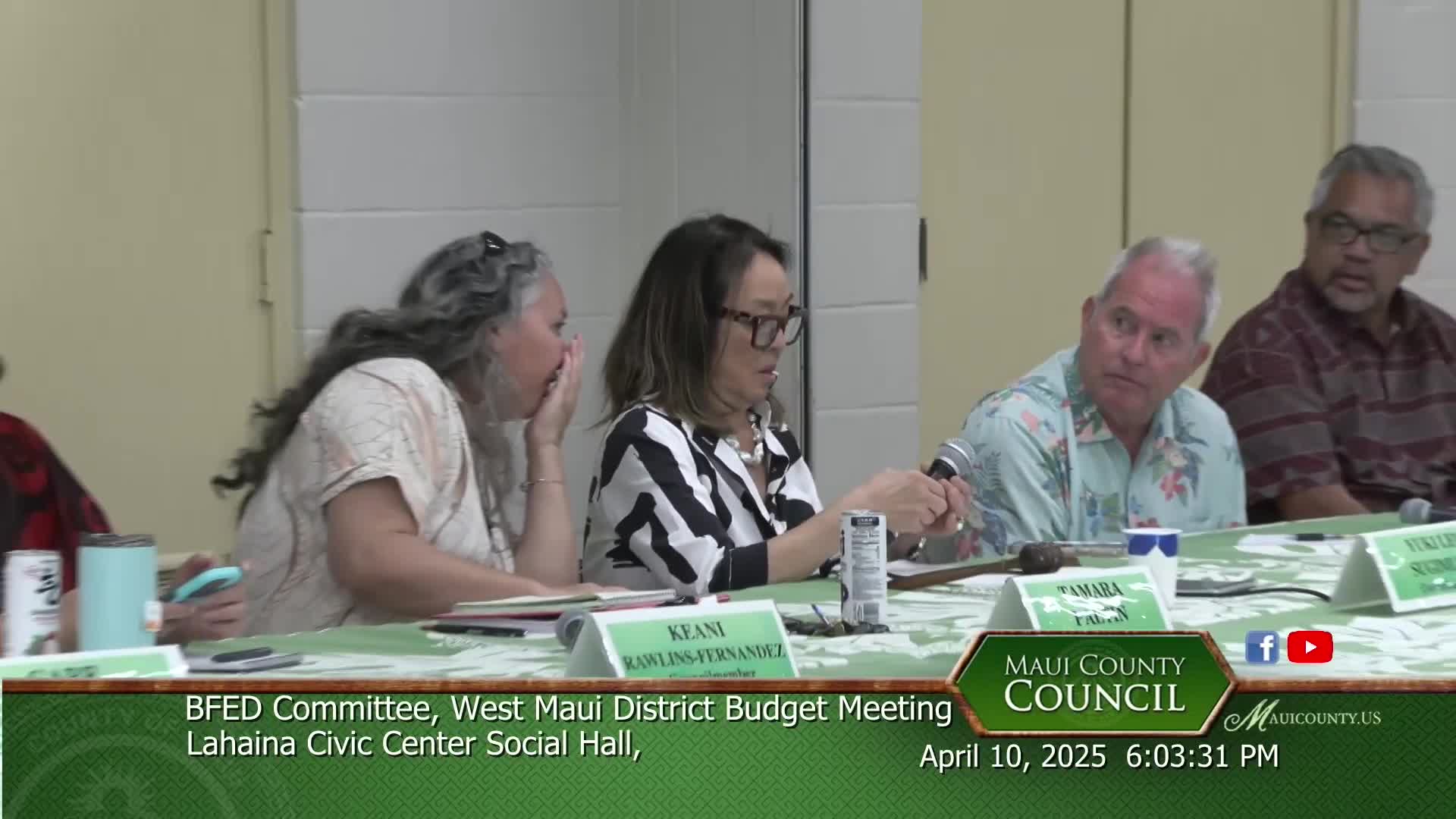Article not found
This article is no longer available. But don't worry—we've gathered other articles that discuss the same topic.
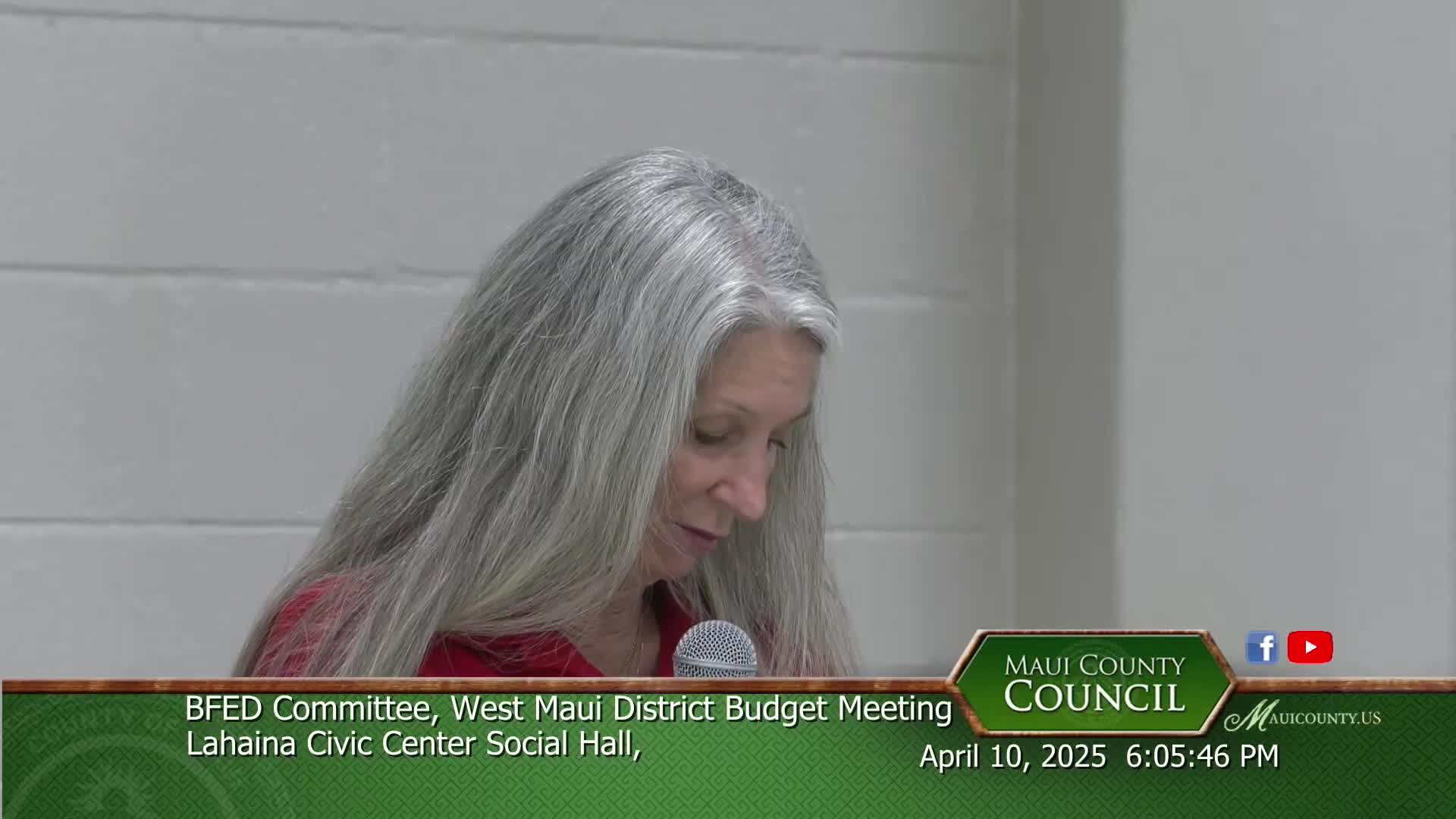
County staff reiterate that long‑term rental and home exemptions may stack; homeowners urged to update mailing addresses
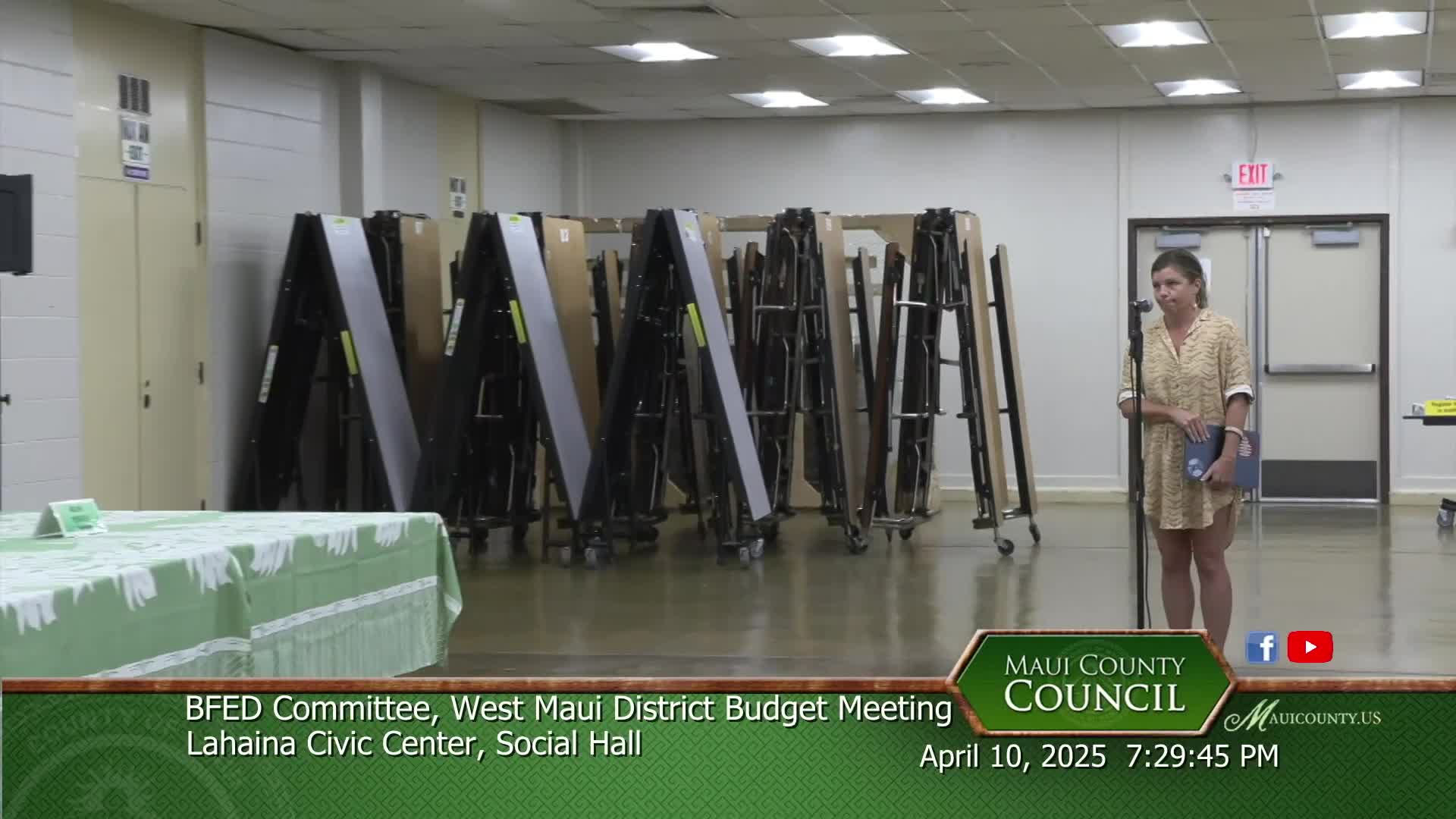
Residents and organizers ask council to prioritize shaded playgrounds, park repairs and resiliency hubs in Lahaina recovery
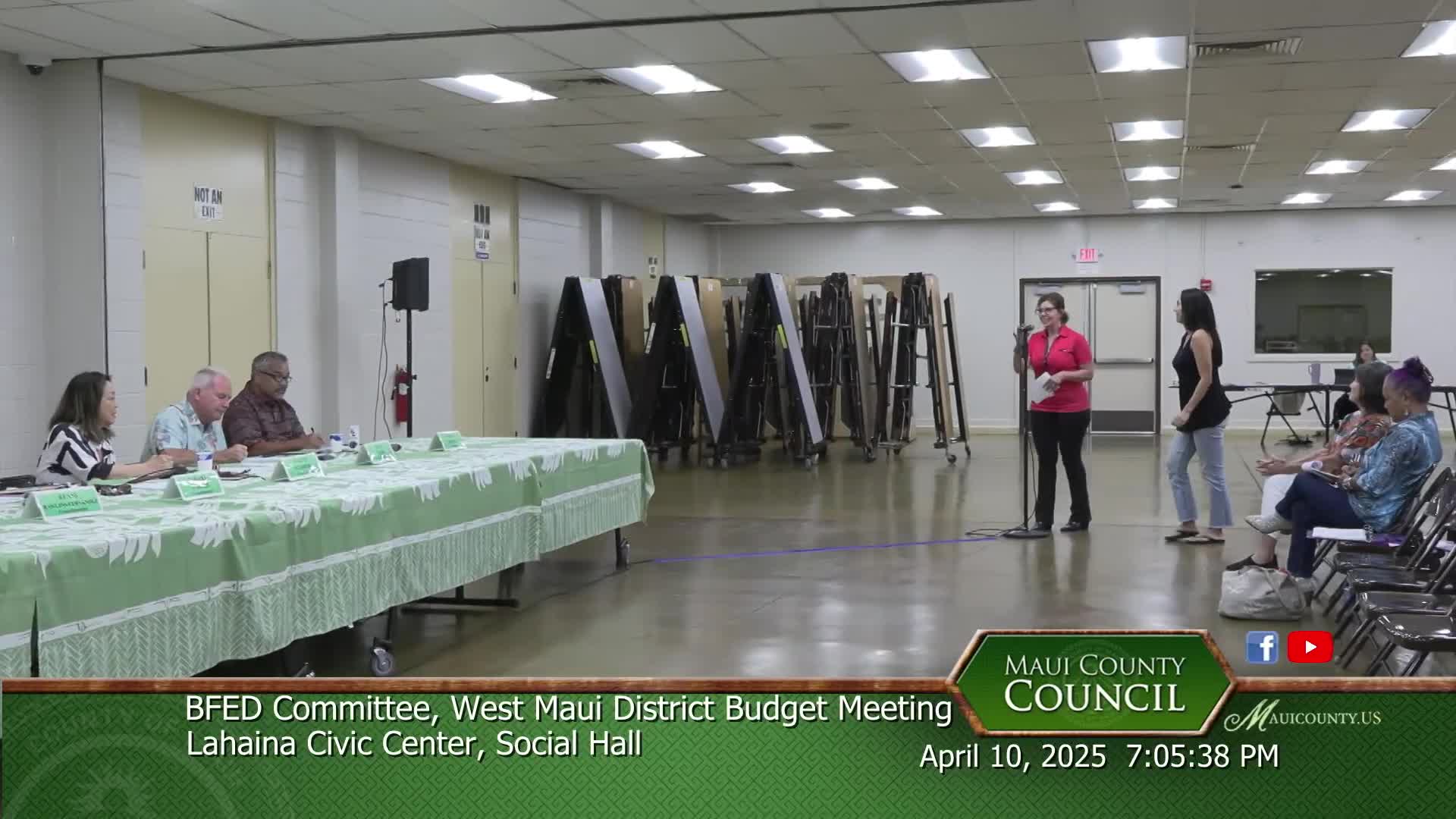
Lahaina Restoration Foundation seeks continuation of historic groundskeeping grant and county support for county building restoration
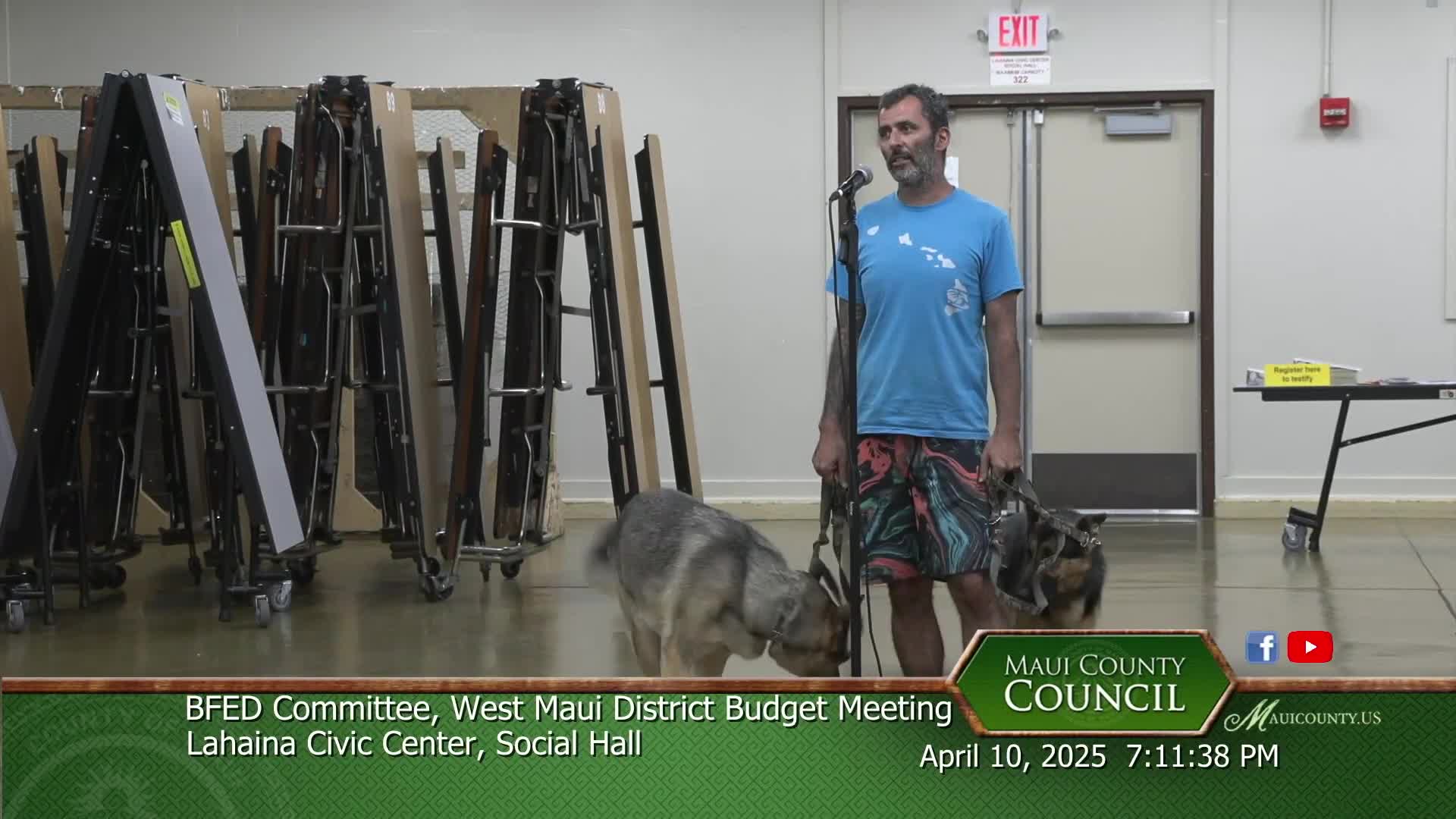
Resident describes barriers to rental assistance, limited options after temporary campground stay
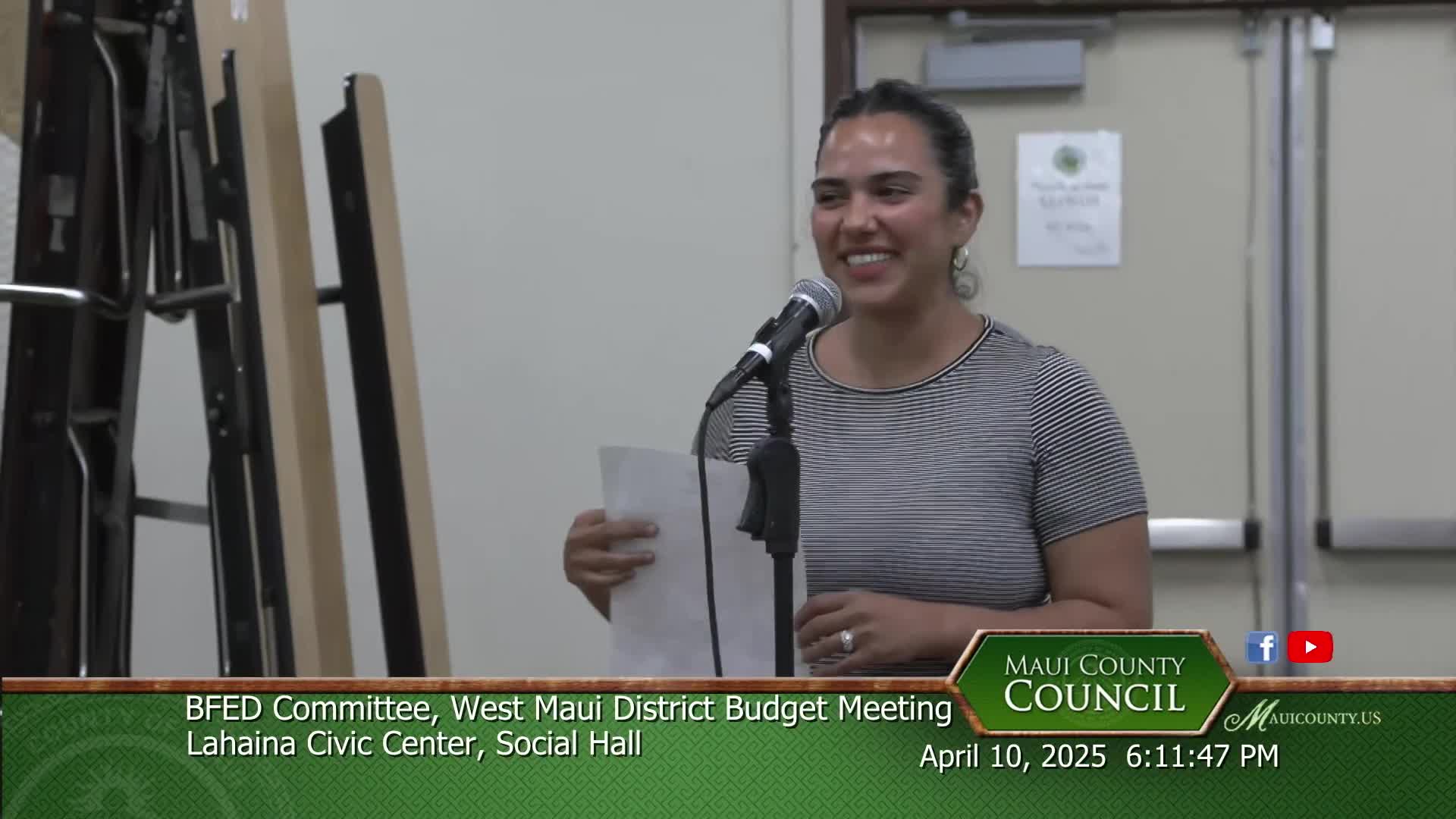
Head Start and early‑childhood advocates urge continued county funding for programs and workforce development
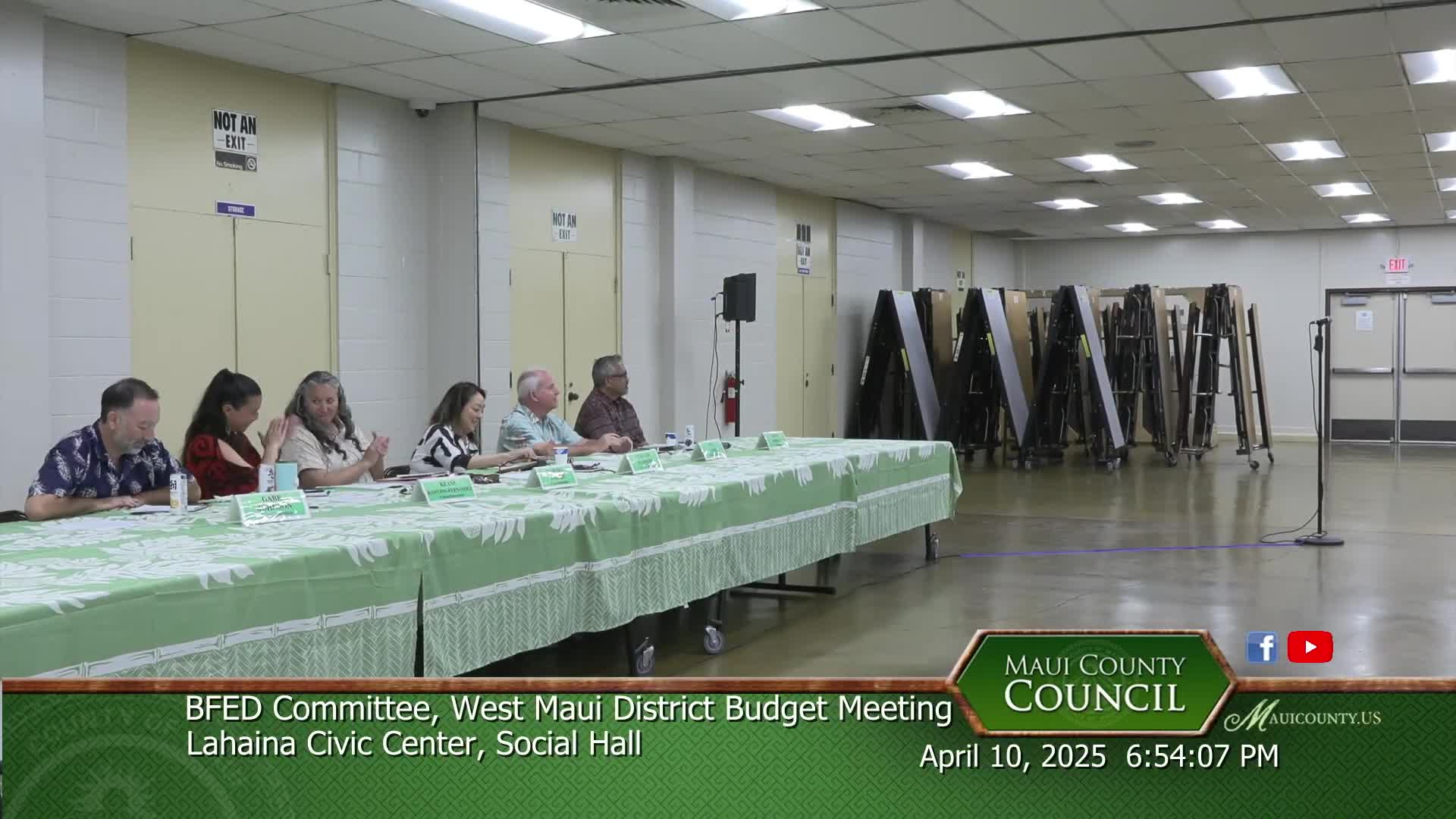
Community groups seek West Maui Economic Development funding for watershed restoration, cultural programs and labor retention
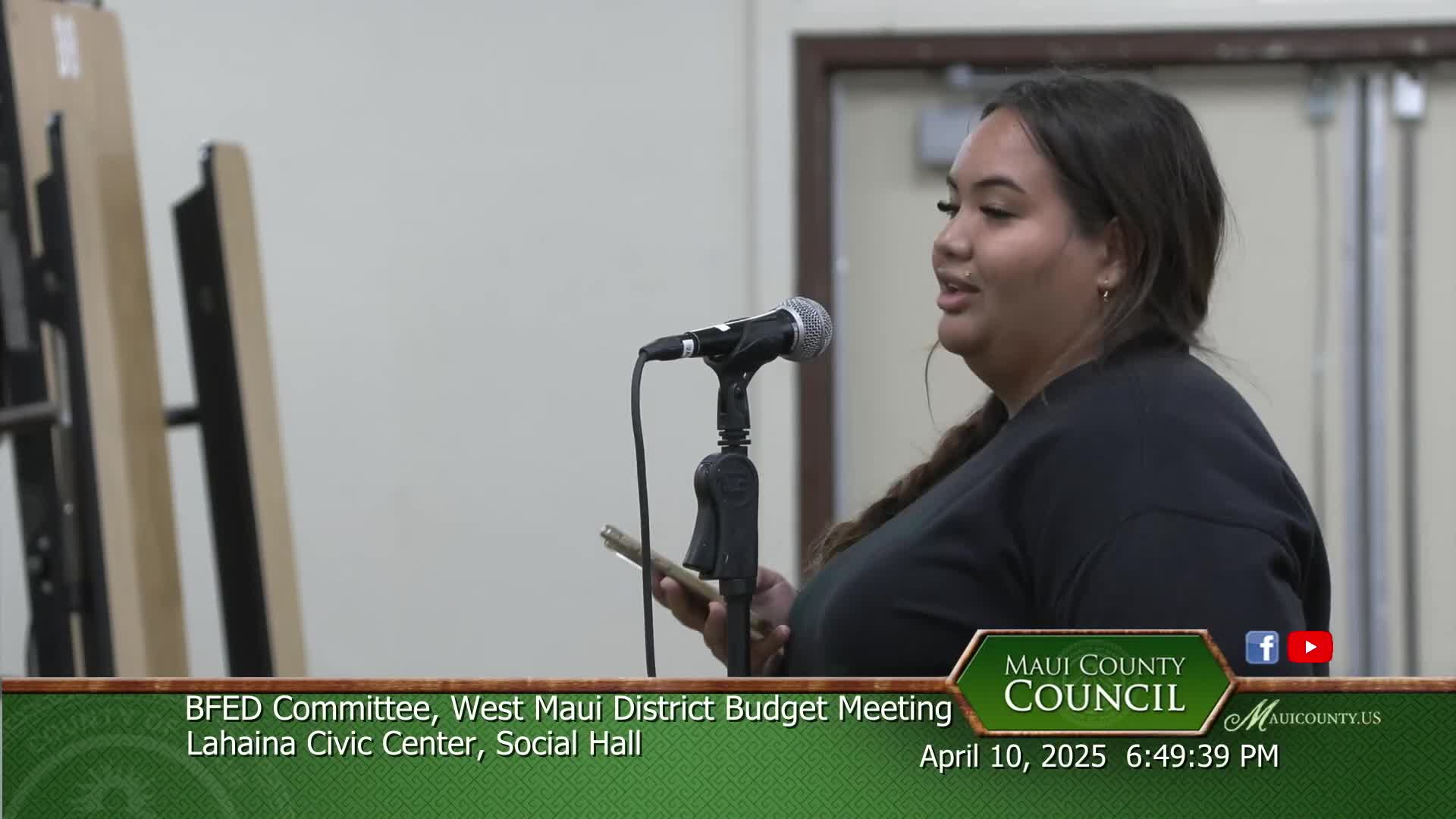
MEO transportation director details thousands of human‑service trips and asks council to protect funding

West Maui Green Cycle asks county for funding to expand composting, school programs and facility capacity
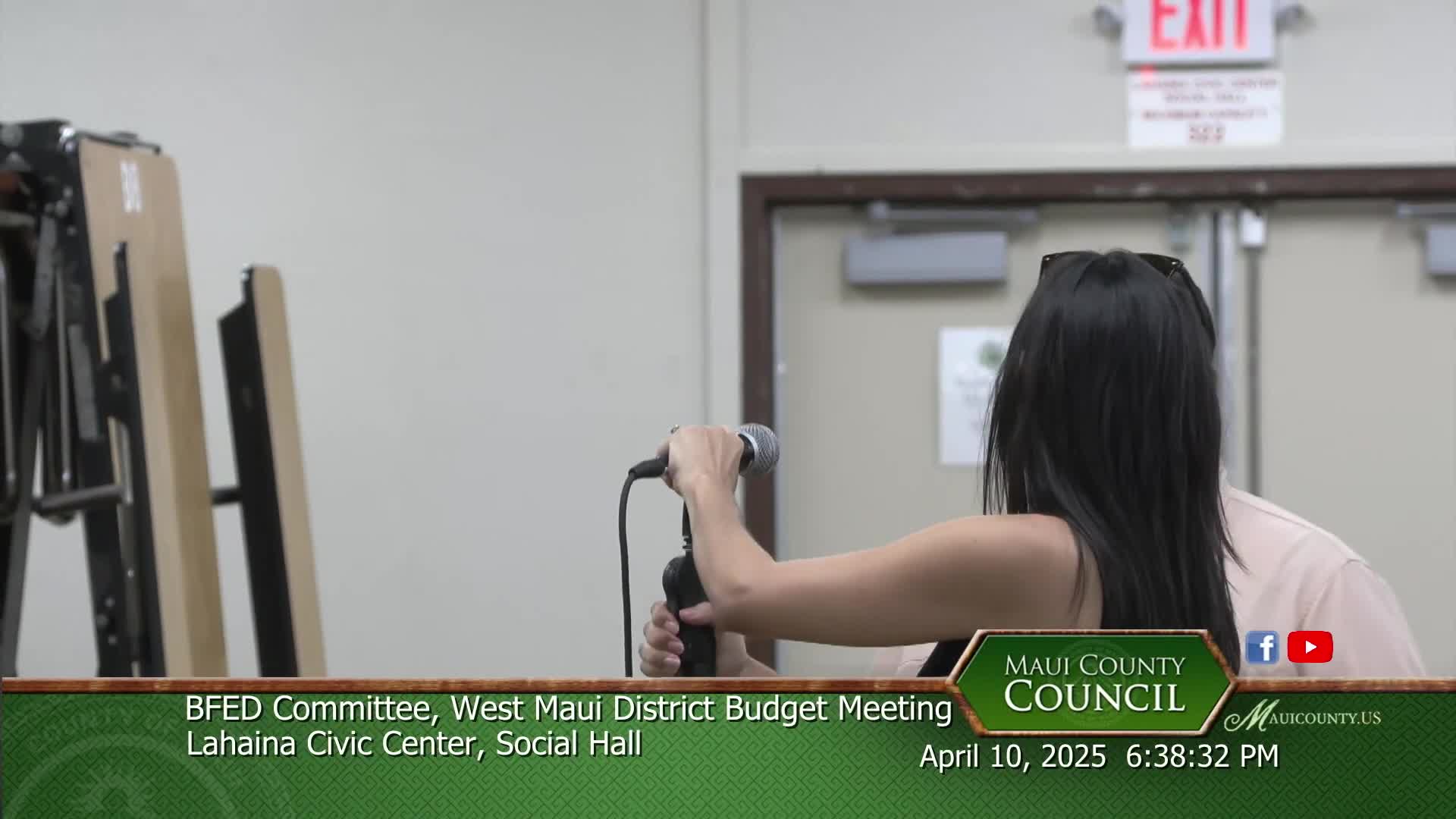
Lahaina Community Land Trust reports property donations and seeks additional support as housing demand rises
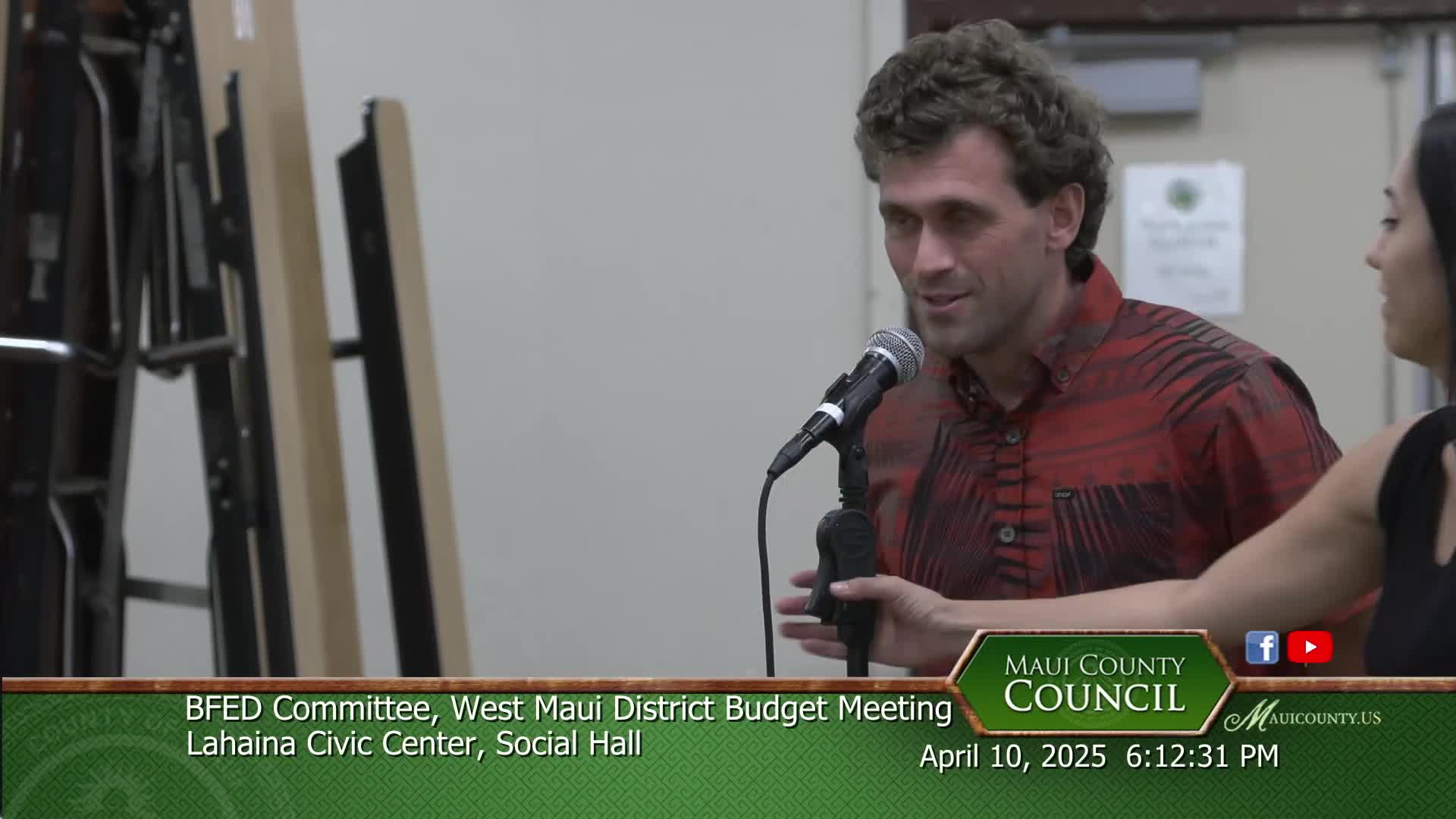
Boys & Girls Clubs of Maui ask council for sustained support as West Maui programs rebuild
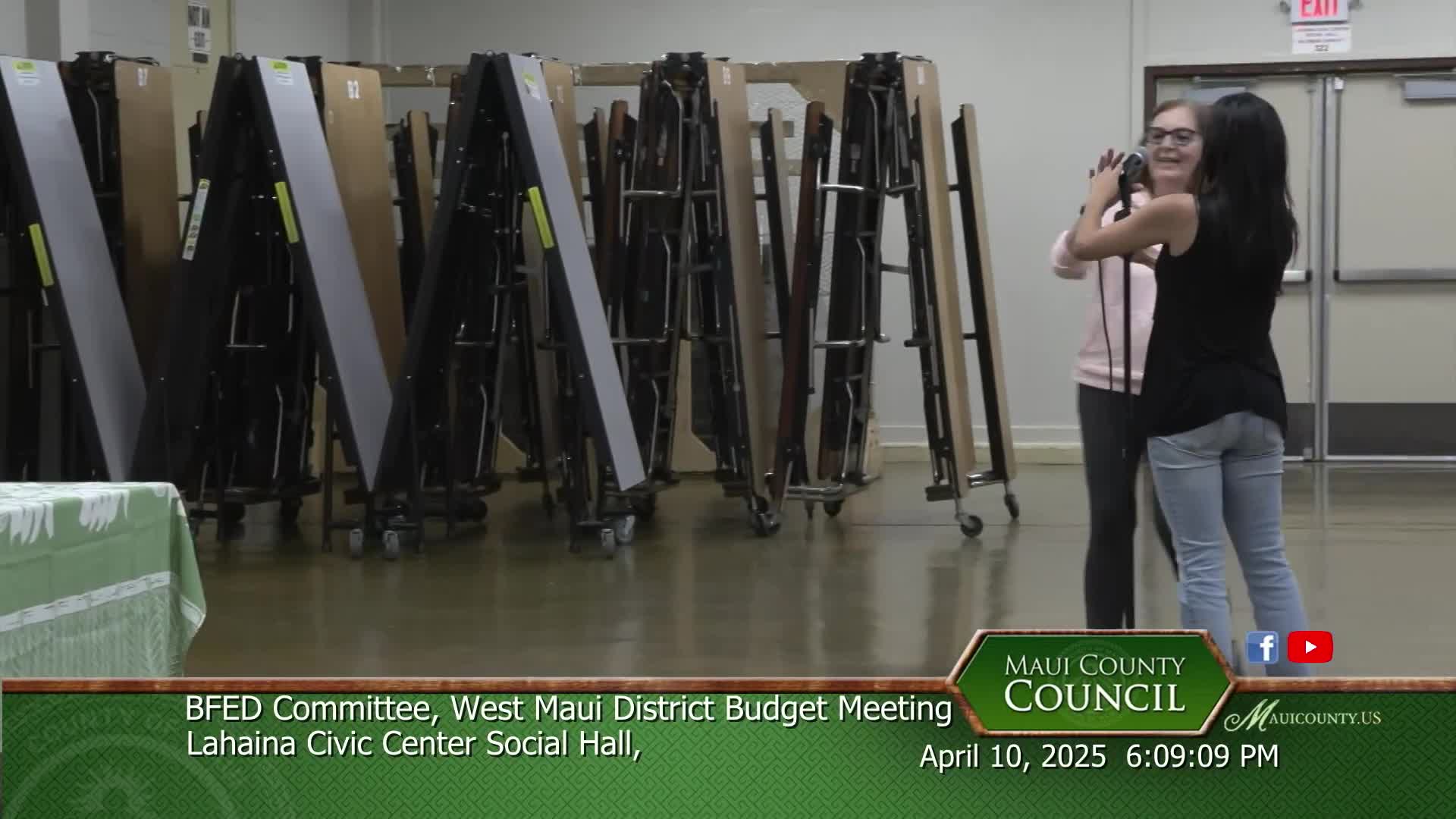
West Maui hospital supporters urge funding and continued planning in county budget
